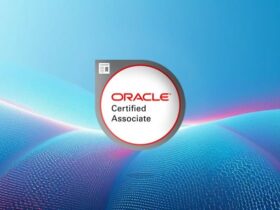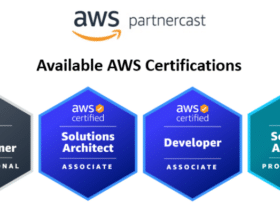Learning C programming can feel like unlocking the door to endless coding possibilities. As one of the most influential and foundational languages, mastering C not only strengthens core programming skills but also opens up opportunities in fields like operating systems, embedded systems, and software development.
The best way to learn C programming is through structured tutorials that combine theory with hands-on practice. Starting with basic syntax and gradually tackling advanced concepts ensures a solid understanding while applying knowledge through real-world examples builds confidence.
For anyone eager to dive into this versatile language, knowing where to start makes all the difference. With countless resources available—ranging from interactive courses to in-depth guides—the journey becomes much easier when armed with the right tools and strategies.
1. Start with Fundamentals
Mastering the basics is essential for learning C programming effectively. Beginners should familiarize themselves with data types, variables, and basic syntax to build a strong foundation—these include int, char, and control statements like if or while. Without understanding these elements, tackling more complex problems becomes frustrating.
Focus on simple programs initially, such as printing text using printf() or performing arithmetic calculations. These exercises reinforce core concepts while giving learners a taste of practical application. It’s also a good idea to learn proper code structure early by correctly organizing headers (#include) and functions like main().
Grasp how memory works in C since it heavily relies on pointers and manual allocation methods like malloc(). Many overlook this step—and pay for it later when debugging errors! Lastly, always write comments in your code; clear documentation makes revisiting projects easier over time.
2. Use Interactive Resources

Leveraging interactive resources is one of the best ways to learn C programming effectively. Platforms like GeeksforGeeks and Coursera offer structured, hands-on learning experiences that keep learners engaged while covering essential topics.
GeeksforGeeks, for instance, provides a comprehensive course titled “Master C Programming with Data Structures.” This program includes 15+ hours of basic concepts and over 20 hours of advanced content, making it suitable for both beginners and intermediate programmers. By solving 150+ industry-relevant coding problems, students gain practical skills while deepening their understanding of real-world applications. Features like doubt resolution, assessments, and certificates make this option highly appealing.
On the other hand, Coursera’s “Introduction to Programming in C Specialization” guides absolute beginners through key areas such as pointers, arrays, recursion, and code execution techniques. The specialization comprises four courses offering video lectures, practice quizzes, assignments, and step-by-step tasks designed to build confidence quickly.
3. Follow Structured Learning
A structured plan makes learning C programming manageable and efficient. By breaking the process into smaller steps, learners can grasp complex concepts more easily.
Begin with a day-by-day curriculum to pace your progress effectively. For instance, dedicate Day 1-2 to understanding fundamental topics like compiling programs and writing basic outputs such as “Hello, World!” On Days 2-3, focus on mastering variables, data types (e.g., int, float), and operators. These are essential for performing calculations and logical operations in any program.
On Days 4-5? Shift attention to control flow statements—these include if/else conditions or loops like for and while, which determine how code executes based on logic. Understanding these is critical before tackling advanced features of the language.
4. Practice Through Projects

Engaging in hands-on projects is one of the best ways to master C programming. By applying theoretical knowledge to real-world scenarios, learners solidify their skills and gain practical experience.
Starting with a Bank Management System is highly beneficial. This project involves creating and managing bank accounts, handling transactions, and simulating daily banking activities. It provides exposure to file handling, data structures, and user input validation techniques.
A simple yet effective beginner project is building a Calendar Application. Developing this system teaches fundamental concepts like working with arrays, loops, and conditional statements as it displays dates, months, or even specific events over different years.
For those interested in organizing data efficiently, the Contact Management System offers value by focusing on storing contacts using structures while implementing basic CRUD (Create-Read-Update-Delete) operations through functions.
Another fun option involves sports: creating a Cricket Scorecard Management program helps beginners understand string manipulations and nested control flow for tracking team scores dynamically during matches.
For advanced learners seeking challenges in network programming, setting up a Cyber Management System, consisting of client-server architecture simulations within cybercafe setups, can deepen understanding of socket APIs while enhancing multi-threading skills foundational to C development.
5. Use Debugging Tools
Debugging tools are essential for mastering C programming and identifying code errors efficiently. Using debuggers like gdb (GNU Debugger) or IDE-integrated options in Code::Blocks and Visual Studio significantly improves the learning process. These tools let users set breakpoints, inspect variables, and step through the code line by line to understand how it behaves.
Practicing with debugging tools helps beginners spot logical flaws or runtime issues rather than relying on guesswork. For instance, many learners unintentionally misuse pointers; a debugger can highlight segmentation faults instantly and display exactly where things go wrong.
Static analysis tools such as Cppcheck add another layer of error detection before even running their programs. They flag potential bugs like uninitialized variables or memory leaks early—a lifesaver when dealing with complex operations involving dynamic memory allocation using functions like malloc() and free().
By systematically incorporating these into coding sessions, debugging ceases to be frustrating chaos and becomes an invaluable part of problem-solving in C development.

















